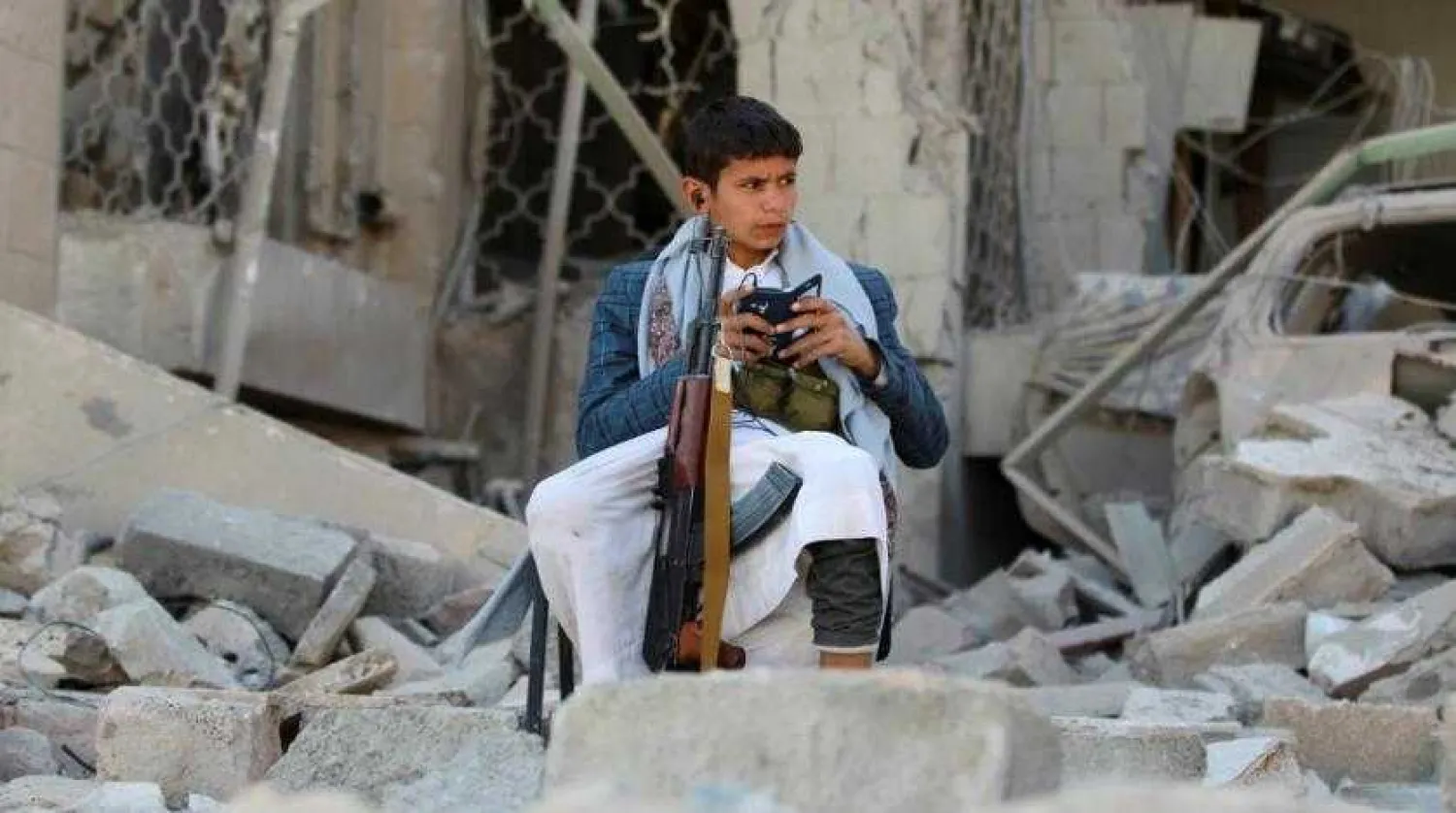Yemeni Information Minister Muammar Al-Eryani told Asharq Al-Awsat on Friday that one of the greatest crimes committed in Yemen by the Houthi insurgents is the sporadic planting of landmines.
“Yemen will face a big problem in the coming years” as a result of the crimes committed by the Houthis, he said.
Speaking in Cairo, the Minister said Arab Coalition states stopped military operations to offer the UN envoy to Yemen a chance to hold talks with the Houthis and convince them on a full withdrawal from the port city of Hodeidah.
Al-Eryani said the second visit of UN envoy Martin Griffiths to the temporary capital Aden and his meeting with President Abdrabbuh Mansour Hadi reflects the ethical responsibility practiced by the legitimate leadership in dealing with the international efforts on a peaceful political settlement in Yemen based on the three basic references represented by the Gulf Initiative and its executive mechanisms, the outcomes of the comprehensive national dialogue and Security Council resolutions in support of legitimacy.
Asked about guarantees provided by the Houthis on their willingness to withdraw from the port city, the minister said that in the past, rebels had rejected the idea of meeting with the UN envoy. However, he explained that with the advance of the Yemeni Army and the Coalition on Hodeidah, the rebels informed Griffiths that they will eventually allow the UN to supervise the city’s port.
“We hope Houthis will offer real concessions that alleviate the suffering of civilians and bring the war to a close under Security Council resolutions, in particular Resolution 2216,” he said.
Asked about a proposal stipulating that both sides release prisoners, Al-Eryiani said: “The Yemeni government expressed its readiness to establish a swap deal involving all captives and detainees.”
However, the history of the Houthis reveals that they reject any attempt to reach a political solution in Yemen, the minister added.









